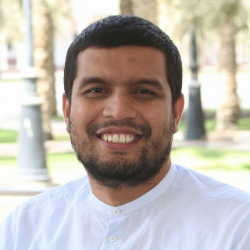Author

Irsyadillah
irsyadillah@usk.ac.id
Secretary at Pusat Riset Ilmu Sosial Budaya (Research Center for Social and Cultural Studies), Universitas Syiah Kuala, Banda Aceh, Indonesia
For the past several months, the world has turned upside down due to the coronavirus. Unlike the most recent outbreak of the Ebola virus, which was only confined to West Africa, the Covid-19 outbreak has been declared by WHO to be a pandemic. It means the disease for which people do not have immunity is to spread beyond a geographical region.
The outbreak was started in China, but all of a sudden, things have changed radically for the worse around the world. Meanwhile, in Wuhan, the place where the coronavirus first appeared, the situation is fully under control. New infections in the city can be counted on finger and there was zero new case transmitted locally in the rest of the country.
China is doing what is necessary in its power including public health measures of a cordon sanitaire and lockdowns to contain the outbreak. The social distancing and travel restriction measures might have upended millions of Chinese people, but it works effectively because it was implemented very quickly. In a very short period of time, it is believed that China has curbed the disease.
WHO has enormous praise for China’s remarkable achievement. The director general of WHO praised President Xi Jinping for showing political commitment and leadership expected from leaders of countries affected by public health crisis. Chinese people also flip from anger of the initial outbreak mismanagement to praise government response. Moreover, countries all over the world are emulating China’s model of success to deal with the virus outbreak.
Meanwhile, in other part of the world, countries including the US, UK, Italy and other European countries, are struggling to contain the outbreak. Epidemiologists say it’s all about the speed, but these countries took so long to declare national emergency. In the UK and some other European countries are not even decided to call for national emergency. The fact that WHO has announced Europe is now the epicenter of the coronavirus pandemic.
It seems democracy is problematic to combat the pandemic. It limits the move to act quickly and prevent implementing various strategies of handling the outbreak. The fact that experts have all agreed that if emergency measures have been geared to what is needed by the real circumstance, as proved in China, the Covid-19 may be combated rapidly.
For example, in Italy, the first confirmed cases reported at the end of January were two Chinese tourists. However, due to containment measures were not put in place very promptly, the number of people contracting Covid-19 jump significantly. The country soon become the second worst affected country after China. Italy is now home for the world highest per capita rate of positive coronavirus cases, at 250 cases per million population.
Although Italy is now implementing a full lockdown, experts has pointed out that the initial approach taken by the government may in part contribute to the rapid spread of the coronavirus nationwide. However, the semi-bans and partial lockdown were responded by political eruption. Regional governors accuse national government of acting out of proportion and told citizen to flee the red zone to stay away from the outbreak, which is an incorrect advice. More worryingly, because policy was not strictly controlled, people still violate the quarantine by leaving the location recklessly.
In the US, President Donald Trump took weeks to announce national emergency, although epidemiologists have warned the potential catastrophic risk posed by Covid-19 outbreak. In the worse scenario, it was projected that between 160 to 214 million people in the US could contract the virus over the course of the outbreak. The fact that the declaration of national emergency could allow the federal government to release emergency fund for $50 billion, but it was delayed for weeks.
For weeks, before announcing the state of national emergency, President Trump kept brushed off the seriousness of the pandemic, and even erroneously confused public over the deadliness of the flu with that of the Covid-19. None one could deny that he was fearful that the outbreak may put his re-election at risk. He was even accused to be dishonest to public when he claims that the US is not lagging in the ability to test citizens for the coronavirus.
It shows that the outbreak really test democracy, in which for political gain in general election, President is not afraid to sacrifice the lives of its citizens. Luckily, the emergency fund could be tapped at the end although the president’s party does not control the congress. The deal was reached between the Congress and the White House to help people affected by the outbreak.
Meanwhile in the UK, although hundreds of people have contracted the Covid-19, strict containment measures have not been taken. The fact that as reported by BBC, the government’s chief scientific adviser Sir Patrick Vallance predicted that 5,000 to 10,000 people could have been infected in the UK.
The longest serving former Health Secretary, Jeremy Hunt, also question why government does not take the necessary action to deal with outbreak. He said that government should do more to encourage social distancing. Prime Minister Boris Johnson might be afraid of severe disruption, which may lead to long-term negative view of his government. The legislation process also takes time, while the fact that human lives are affected by millisecond.
On the other hand, government has no control over the media. The bombastic headlines such as “Dead bodies pile up on floor at hospital in Wuhan overrun by outbreak”, “Killer virus: Fear hard-pressed NHS won’t cope”, and “Bracing for virus mayhem”, have constantly appeared in national news outlets. Due to free press, government could not do anything to prevent people from panicking with coronavirus outbreak.
Again, it shows that democracy is problematic at fighting outbreak. It is completely different from China, which can build entirely new hospital just in ten days, while in Norway taking years to decide where to put new hospital beds.
We need to decide which model to follow to deal with the potential coronavirus outbreak. Singapore, Taiwan and Hongkong have also acted brilliantly to solve the Covid-19 situation as they have experience of fighting SARS outbreak. However, of course, it is important to follow recommendations that the handling of Covid-19 outbreak should be given to professionals. People would listen more to the experts.
It is important to note that citizens are constantly exposed to the religious clerics, who are in some society considered to be the experts in every matter of life. The fact that they are not always providing appropriate and correct advice.
For example, there are some who accuse the Saudi government of acting out of proportion for banning Umrah pilgrimage. People are deeply influenced by the argument that dead is merely a destiny. They easily accept thoughts that are provocative such as no one should stop people from doing their worship services. This situation is certainly dangerous if we are facing major pandemic.
Therefore, government needs to have full trust of citizens, so that they do not turn to incorrect sources. Transparency is an important principle to sustain population’s trust, thus regular updates from government are paramount. In the end, effective communication is key to success in dealing with situation like this.
